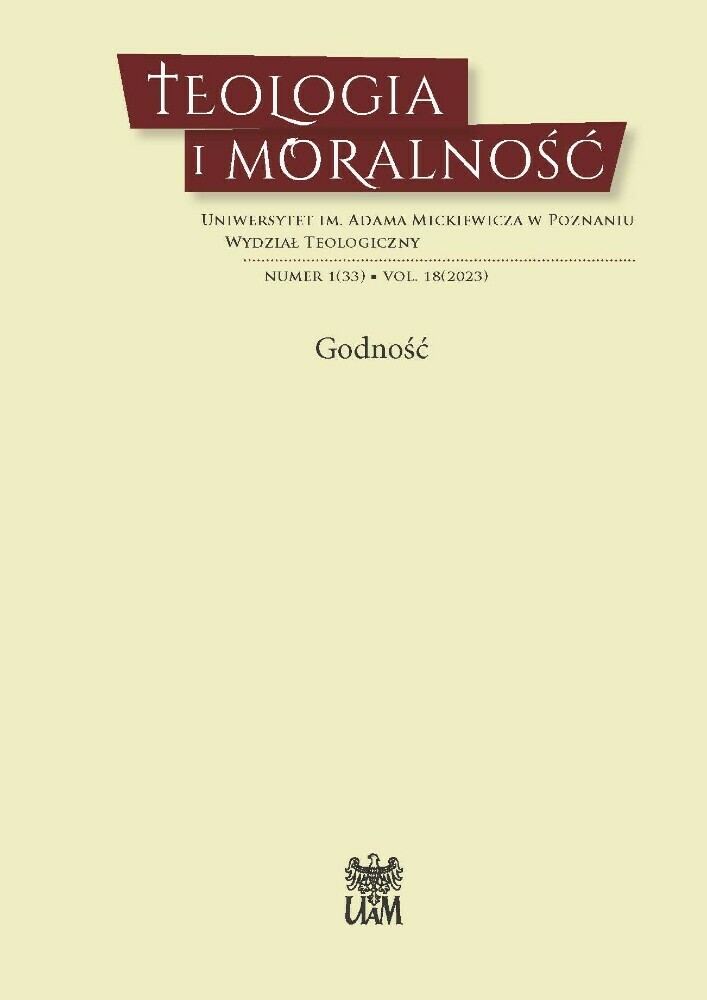Abstract
The outbreak of the war in Ukraine and the resulting refugee exodus caused an avalanche of changes that affected first the Ukrainians themselves and then the societies that hosted them. The new situation required and still requires a response from the pastoral ministry of the Catholic Church in Poland. The purpose of this study is to search for indications useful for building a pastoral model of pastoral work among Ukrainians. The subject of the research is the religiosity of the Ukrainian society observed in 2020 as part of the seventh wave of the European Values Study, whose databases are publicly available. Access to raw data made it possible to carry out statistical tests showing the significance, strength and direction of correlation between religiosity parameters and the main socio-demographic characteristics. The results of these analyzes were sociologically interpreted and conclusions and pastoral postulates were drawn from them. It turns out that the majority of Ukrainian society declares belonging to the Eastern rite or non-denominationalism. 8 out of 10 Ukrainians describe themselves as religious and believers in God, which does not translate into religious practices or the professed doctrine. It is also worth noting that a signifi cant proportion of war refugees are women, who, according to research, present a higher level of religiosity than the general population of Ukraine. Besides, the attitude towards faith in a statistically significant way depends on the place of residence in Ukraine. All these circumstances and the awareness of the dynamics of changes conditioned by the current situation open up new perspectives for pastoral care in Poland. It is an opportunity not only to engage in charity, but also to deepen religious awareness, especially towards Orthodox and Greek Catholic people, and a missionary attitude towards people who do not belong to any religion. Such an approach to the issue is possible within pastoral sociology, which is to be a space for dialogue between pastoral theology and sociological knowledge and empirical research.
References
Berger, Peter Ludwig. 2005. Święty baldachim. Kraków: Nomos.
Davie, Grace. 2010. Socjologia religii. Kraków: Nomos.
European Values Study, https://europeanvaluesstudy.eu.
Franciszek. 2013. Encyklika „Evangelii gaudium”.
Hervieu-Léger, Daniel. 1999. Religia jako pamięć. Kraków: Nomos.
Kutyło, Łukasz. 2012. Teorie socjologiczne a religia. Między sekularyzacją a desekularyzacją. Łódź: Wydawnictwo Uniwersytetu Łódzkiego. DOI: https://doi.org/10.18778/7525-717-5
Luckmann, Thomas. 2006. Niewidzialna religia. Problem religii we współczesnym społeczeństwie. Kraków: Nomos.
Luhmann, Niklas. 2007. Funkcja religii. Kraków: Nomos.
Łuczak, Marek. 2005. Socjologia religii jako ancilla theologiae pastoralis. Studia Pastoralne, 35-44.
McGuire, Meredith. 2012. Religia w kontekście społecznym. Kraków: Nomos.
Norris, Pippa i Inglehart Roland. 2006. Sacrum i profanum. Religia i polityka na świecie. Kraków: Nomos.
Ostrowski, Maciej. 2021. Parafi a wspólnotą otwartą na migrantów. Studia Pastoralne, 17, 200-212.
Stark, Rodney i William Sims Bainbridge. 2000. Teoria religii. Kraków: Nomos.
Tutak, Mateusz Jakub. 2020. W stronę socjologii pastoralnej, czyli o relacjach socjologii z teologią pastoralną. Studia Gdańskie, 46, 103-118.
License
Copyright (c) 2023 Mateusz Jakub Tutak

This work is licensed under a Creative Commons Attribution-NoDerivatives 4.0 International License.

